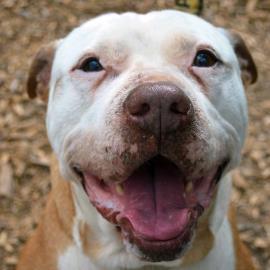The Road to Kill Shelter Hell is Paved with Questionable Government Intentions
How many state legislators does it take to run a successful No Kill shelter in Texas? None, actually.
Animal shelters are very different from veterinary offices in the way they operate. Vet clinics are run by veterinarians who employ staff. Shelters are run by lay people and employ veterinarians. While vet offices see animals by appointment and all care is ordered by the veterinarian, shelters practice the "herd health" mode of care. This involves vaccinating and assessing the medical needs of large numbers of animals as they come in, often around the clock. Life-saving shelters put protocols in place so that this work can be done by paid staff and/or trained volunteers. This streamlined system means vets are needed only for surgery, ordering basic medications and for professional expertise.
In Texas, The State Board of Veterinary Medical Examiners (Vet Board) is the government entity that regulates the profession and keeps vets in compliance with The Veterinary Practice Act setting one statewide standard. By law, every veterinarian in private practice in Texas is accountable to this state board. However, the law also states that the Vet Board has no jurisdiction over animal shelters, and this is appropriate because shelters are not private practices with clients being "sold" services for the pet they own. Legally, animal shelters and their employees are considered the "owners" of all their animals, and they are allowed to dispense vaccines, medication and care to their animals just like farmers and ranchers, regardless if there is a vet on staff or not.
This might sound counterintuitive at first; what animal shelter wouldn't want a full-time vet and to have their vet staff regulated to ensure quality? But this particular statute is common practice in most states as it's understood that non-profit and municipal animal shelters could never afford to operate if held to the same regulations as for-profit clinics. Shelter budgets would have to double just to pay all the vet staff, drastically reducing the number of lives they could save.
Until very recently, the Shelter Medicine model in Texas worked just fine without state government interference and inspired shelters that were tired of killing to find new innovative and cost-saving ways to save as many animals as possible. In Austin, it has been refined down to a near perfect science by award-winning shelters like Austin Pets Alive!. APA!'s efforts have gone a long way in helping the Capital City to claim the title of largest U.S. city to reach "No Kill" status, four years running. By primarily taking animals on the kill lists of other shelters, they have been instrumental in pushing Austin to a higher than 90 percent live outcome rating at the city's municipal shelter. But all this incredible progress is now in serious jeopardy. State legislators have introduced a very real threat to every last animal shelter in Texas and its name is Senate Bill 1911.
If passed, SB1911 would require every Texas animal shelter, regardless of size, to adhere to the same regulations and practice techniques as veterinary offices. If an animal needs an antibiotic pill for an infected wound after hours, a vet would have to be there to order it, no matter how well trained the shelter employees are. Shelters would have to make some grim choices: kill the animal to prevent suffering or pay hundreds of dollars at emergency clinics. This alone would cause most shelters to kill more animals, operate illegally or close their doors. Cities would have to increase costs dramatically at their municipal shelters or, much more likely, only save a fraction of the animals. With so many cities increasing their live release rates even in the face of undergoing budget cuts, this would effectively shut down life-saving operations in many shelters in Texas, and all for not being wealthy enough to follow the rules.
The rules and regulations that make sense in a vet hospital don't make sense in a shelter setting, although that hasn't stopped the Vet Board from spending several years and unknown amounts of tax payer money making this power play. In the end, the sad fact is that yet another big government agency is trying to enforce regulations on a system it neither understands nor cares about. When all this ruckus started a few years ago, The Texas Vet Board was under the auspices of then State Attorney General Greg Abbott. The Board was unsure who to blame in a complaint case at an animal shelter and decided to try forcing their regulations on shelters statewide. Requiring a vet be on staff at all shelters is a double win for the Board: should a complaint be filed at any shelter in the future then the vet on staff would take the blame. And since the Board's main interest is in "upholding the integrity of the veterinary profession", demanding a vet in every shelter means more money in vet's pockets.
The Texas Vet Board doesn't care if tens of thousands of animals will be euthanized simply for lack of funding if shelters are forced to follow their regulations. And apparently neither does Gregg Abbott, as he did nothing to stop the Board's overreaching governmental waste of taxpayer money. You might think he'd take some interest since he just ran a successful campaign for the governor's seat on piles of anti-big government rhetoric.
SB1911 is set to be heard on April 14th.



